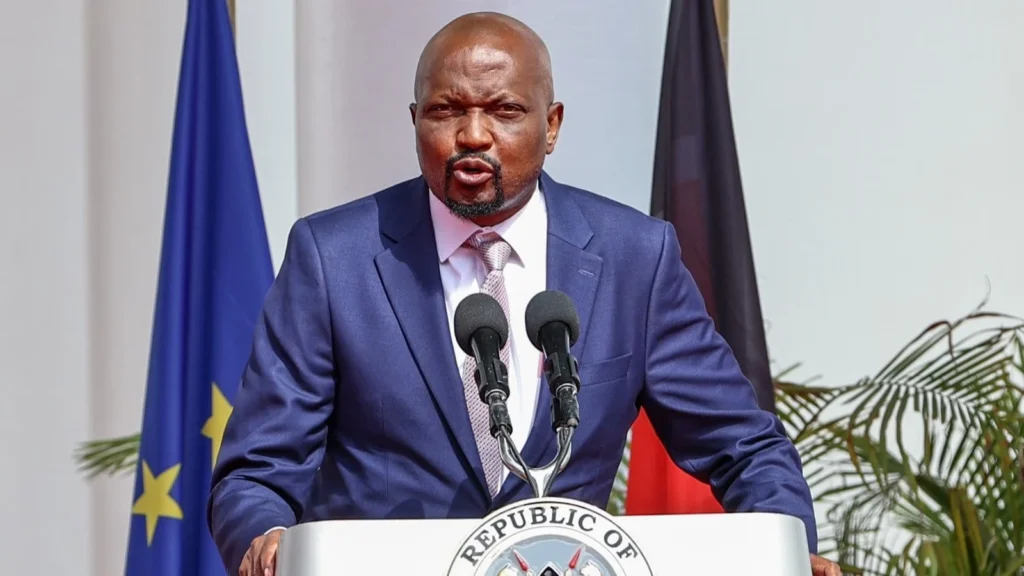Former Trade Cabinet Secretary Moses Kuria has reignited debate on corruption in Parliament after claiming that Members of Parliament were paid to remove former Majority Leader Aden Duale during the 12th Parliament.
Speaking during an interview on Citizen TV, Kuria alleged that each legislator received Ksh100,000 from the administration of former President Uhuru Kenyatta to endorse Duale’s ouster and replace him with then Kipipiri MP Amos Kimunya.
“In the 12th Parliament, we were given some money by the Uhuru Kenyatta regime to remove Aden Duale as Majority Leader. It is on Hansard that I waved the money I was given there. You cannot say it doesn’t happen,” Kuria stated. He further revealed that he even offered to return the money on the floor of the House.
The development comes against the backdrop of renewed focus on integrity in Parliament, following President William Ruto’s warning on Monday that his administration would crack down on lawmakers accused of soliciting or receiving bribes to influence their legislative duties.
Kuria’s remarks revisit one of the most turbulent moments in Kenya’s recent political history, when the ruling Jubilee Party was rocked by divisions between the “Kieleweke” and “Tangatanga” factions. Duale, who was perceived to be drifting away from the Uhuru-Raila handshake politics, became a casualty of the purge that reshaped leadership in Parliament.
Kuria first made the bribery claims in 2021 during a BBC interview, where he suggested that MPs had received “facilitation” to endorse Kimunya’s elevation. His latest remarks, however, lend fresh weight to the allegations as they surface at a time when the Ruto administration is under pressure to demonstrate its commitment to fighting corruption.
Political analysts argue that Kuria’s revelations underscore the entrenched culture of inducements in Kenya’s politics, where loyalty shifts are often greased by financial incentives. The allegations, if substantiated, could spark renewed scrutiny of past parliamentary decisions and the credibility of the legislative process.
For Duale, now serving as Defence Cabinet Secretary, the claims reopen old wounds of political betrayal. For Ruto, they bolster his administration’s anti-corruption rhetoric but also raise questions about how deep the problem runs within the very institutions charged with oversight.

